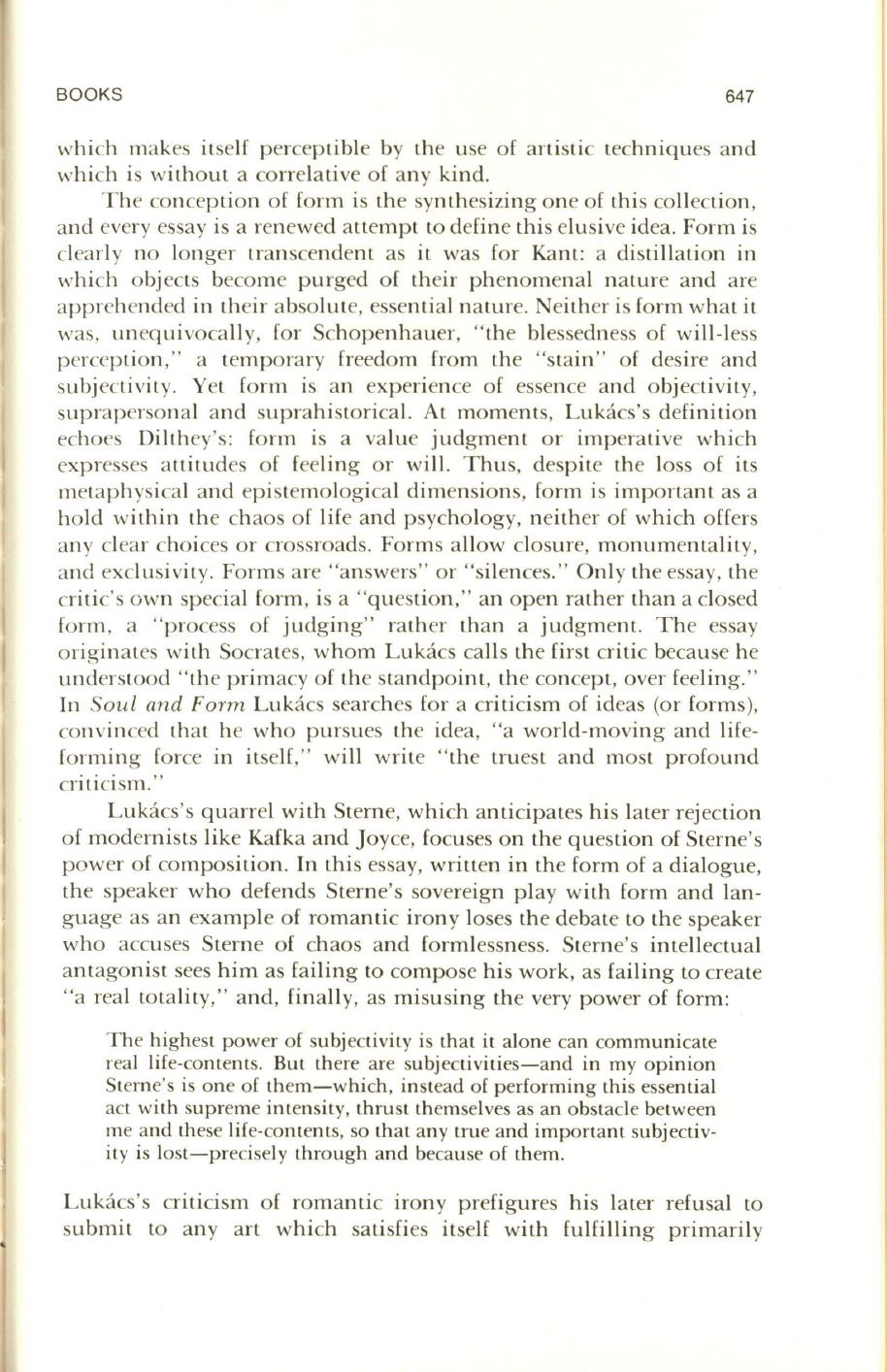
BOOKS
647
which makes itself perceptible by the use of artistic techniques and
which is without a correlative of any kind.
The conception of form is the synthesizing one of this collection,
and every essay is a renewed attempt to define this elusive idea. Form is
clearly no longer tran scendent as it was for Kant: a distillation in
which objects become purged of their phenomenal nature and are
apprehended in their absolute, essential nature. Neither is form what it
was, unequivocally, for Schopenhauer, " the blessedness of will-less
perception," a temporary freedom from the "stain " of desire and
subjectivity. Yet form is an experi ence of essence and objectivity,
suprapersonal and suprahistorical. At moments, Lukacs's definition
echoes Dilthey's : form is a value judgment or imperative which
expresses a ttitudes of feeling or will. Thus, despite the loss of its
metaphysical and ep istemological dimensions, form is important as a
hold wi thin the chaos of
I
ife and psychology, neither of which offers
any clear choi ces or crossroads. Forms allow closure, monumentality,
and exclusivity. Forms are "answers " or "sil ences." Only the essay, the
criti c's own special form , is a "question ," an open rather than a closed
form , a "process of judging" rather than a judgment. The essay
originates with Socrates, whom Lukacs calls the first critic because he
understood "the primacy of the standpoint, the concept, over feeling."
In
Soul and Form
Lukacs searches for a criticism of ideas (or forms),
convi nced tha t he who pursues the idea, "a world-moving and life–
formin g force in itself," will write "the truest and most profound
cri ticism."
Lukacs's quarrel with Sterne, which anticipates his later rejection
of modernists like Kafka and Joyce, focuses on the question of Sterne's
power of composition. In this essay, written in the form of a dialogue,
the speaker who defends Sterne's sovereign play with form and lan–
guage as an example of romantic irony loses the debate to the speaker
who accuses Sterne of chaos and formlessness . Sterne's intellectual
antagonist sees him as failing to compose his work , as failing to create
"a real totality," and, finally, as misusing the very power of form:
The highest power of subjectivity is that it alone can communicate
real life-contents. But there are subjectivities-and in my opinion
Sterne's is one of them-which, instead of performing this essential
act with supreme intensity, thrust themselves as an obstacle between
me and these life-contents, so that any true and important subjectiv–
ity is lost-precisely through and because of them.
Lukacs's criticism of romantic irony prefigures his later refusal to
submit to any art which satisfies itself with fulfilling primarily


